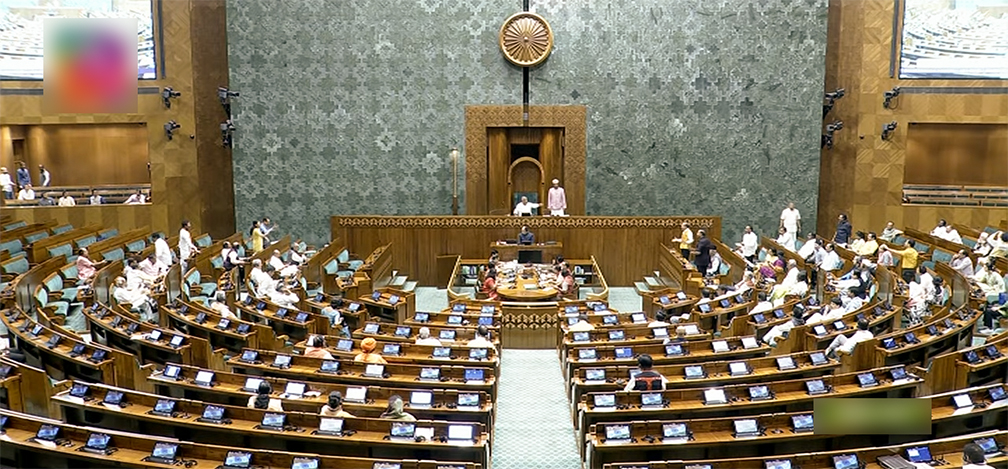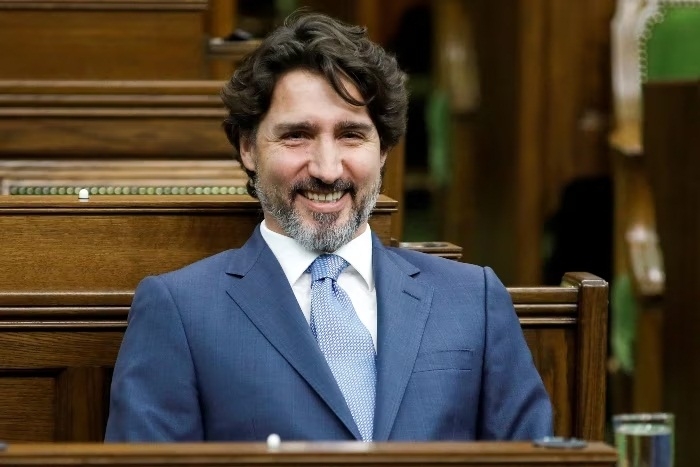Among the 18 Bills are significant criminal law legislation aimed at replacing the Indian Penal Code, the Code of Criminal Procedure of 1973, and Indian Evidence Act of 1872…reports Asian Lite News
The Central government, on Wednesday, listed 18 Bills to be taken up for consideration and passage during the upcoming winter session of the Parliament, which will be held from December 4 to 22. Among the 18 Bills are significant criminal law legislation aimed at replacing the Indian Penal Code (IPC) of 1860, the Code of Criminal Procedure (CrPC) of 1973, and the Indian Evidence Act of 1872.
The proposed Bharatiya Nyaya Sanhita 2023, Bharatiya Nagarik Suraksha Sanhita 2023, and Bharatiya Sakshya Bill 2023 aim to replace the IPC, CrPC and the Evidence Act respectively.
These Bills were introduced in the Lower House of Parliament on August 11, and were referred to the Standing Committee on Home Affairs by the Chairman, Rajya Sabha in consultation with the Speaker, Lok Sabha and an intimation thereof was published in Bulletin-Part II, dated August 21, 2023.
“These three acts, which will be replaced, were made to strengthen and protect British rule and their purpose was to punish, not to give justice. We are going to bring changes in both these fundamental aspects,” Union Minister Amit Shah said as he introduced the bill in Lok Sabha on August 7.
The soul of these three new laws will be to protect all the rights given by the Constitution to Indian citizens. The objective will not be to punish anyone but to give justice and in this process, punishment will be given where it is required to create a sense of crime prevention, he added.
The Report of the Committee was presented on November 10, 2023, to the Chairman, Rajya Sabha and forwarded to the Speaker, Lok Sabha.
According to a bulletin issued by the Lok Sabha Secretariat on Wednesday, the government will introduce, The Boilers Bill, 2023, The Provisional Collection of Taxes Bill, 2023, The Central Goods and Services Tax (Second Amendment) Bill, 2023, The Jammu and Kashmir Reorganization (Amendment) Bill, 2023, The Government of Union Territories (Amendment) Bill, 2023, The National Capital Territory of Delhi Laws (Special Provisions) Second (Amendment) Bill, 2023, The Central University (Amendment) Bill, 2023, in the Parliament.
Among others, the Bill to regulate the appointment, conditions of service, and term of office of the Chief Election Commissioner and other Election Commissioners is among the legislative business of the government for the upcoming session, which will conclude on December 22.
The Chief Election Commissioner and other Election Commissioners (Appointment, Conditions of Service and Term of Office) Bill, 2023 was introduced in Rajya Sabha during the Monsoon session on August 10.
This Bill also deals with the procedure for the transaction of business by the Election Commission. Besides, it proposes that the Election Commissioners will be appointed by the President on the recommendation of a panel comprising the Prime Minister, the Leader of the Opposition in Lok Sabha, and a Union Cabinet Minister nominated by the Prime Minister. The Prime Minister will chair the panel.
The Bill, if it comes into effect, will negate the Supreme Court’s March 2023 judgement that held that the appointment of Election Commissioners will be done by the President on the advice of a panel comprising the Prime Minister, Leader of the Opposition, and the Chief Justice of India. However, in its judgement, the apex court had held that the procedure underlined by it would hold till a law is enacted by Parliament.
Meanwhile, on behalf of the government, Parliamentary Affairs Minister Pralhad Joshi has called an all-party meeting ahead of the session on December 2. (ANI)
Mamata seeks consensus-building
West Bengal Chief Minister Mamata Banerjee on Tuesday wrote to Union Home Minister Amit Shah, urging the central government not to rush through ‘The Bharatiya Nyaya Sanhita 2023’, ‘The Bharatiya Nagarik Suraksha Sanhita 2023’ and ‘The Bharatiya Sakshya Bill 2023’ in the upcoming Winter Session of Parliament.
“I do hope that keeping the sensitivity of the subject in mind, you will kindly attempt to arrive at a consensus-building amongst all stakeholders on the proposed Bills, rather than rushing to pass them in their present form, which has potential implications of serious nature in future,” Mamata stated in her letter to the Union Home Minister.
The CM suggested that the newly elected members of the Lok Sabha, following the general elections next year, along with the new government, should deliberate upon these “extremely important legislations” and take a considered view.
Mamata added that “detailed views of all sections of stakeholders” like jurists, public activists, human rights workers, and the general public should be taken in order to create a consensually accepted platform.
“…the proposed overhauling of the existing criminal-penal statutes and replacing them with new statutes, is bound to have far-reaching long-term implications on our polity. The suggested changes will also affect the public life of India in multiple ways,” Mamata stated further in her letter.
The Trinamool Congress (TMC) has been leading the charge alongside the Congress, Dravida Munnetra Kazhagam (DMK) and members of their other partners in the INDIA bloc in the Parliament’s Standing Committee in strongly opposing the proposed legislations.
The Bharatiya Nagarik Suraksha Sanhita 2023, the Bharatiya Nyaya Sanhita 2023, and the Bharatiya Sakshya Bill 2023 were introduced in the Lower House of Parliament on August 11. (ANI)














